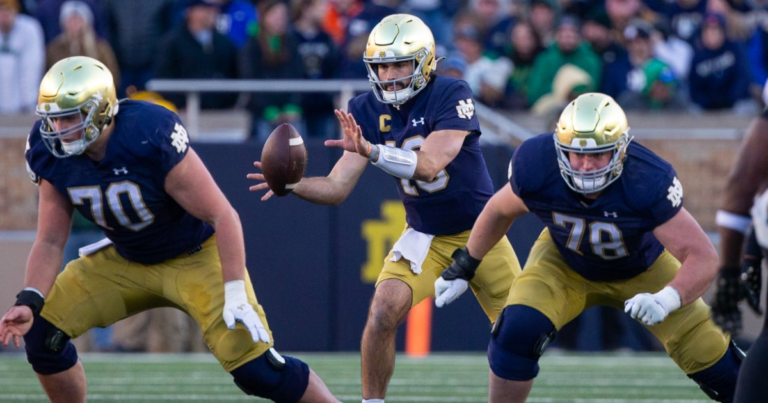How Long is Football Practice?
Football practice is a vital part of any team’s training routine. Knowing how long practices often last will help you prepare both mentally and physically, regardless of your level of experience. We’ll explore how long is football practices usually last, what to expect throughout those hours, and how to maximize your training time in this post.
Why Football Practice Duration Matters
Football practice duration varies according on age, skill level, team objectives, and season stage. To stay focused and maximize your practice time, it’s critical to know how long it will take. A carefully thought-out practice ensures that athletes maintain their fitness, advance their abilities, and collaborate effectively as a team.

How Long is a Typical Football Practice?
1. Youth Football Practices
For young players (ages 6 to 14), football practice usually lasts between 1 to 2 hours. These practices focus on teaching the basics of the game, improving fitness, and building teamwork.
- Session Length: 1–2 hours
- Focus: Skills, rules, fitness, and fun
At this age, the intensity of training is lower, and practices often include breaks to keep the kids energized. Coaches usually mix drills, short scrimmages, and team-building activities. It’s all about keeping kids engaged while learning.
2. High School Football Practices
For high school players, football practice lasts 2 to 3 hours. These practices are more intense and focused on skill development, game strategy, and fitness.
- Session Length: 2–3 hours
- Focus: Position-specific drills, conditioning, team strategy
High school teams have more structured practice schedules, often with specific drills for offense, defense, and special teams. Coaches expect players to give more effort, and fitness drills like running and weight training become a regular part of the routine.
3. College and Professional Football Practices
At the college and professional levels, football practice can last 3 to 5 hours or more on any given day. The longer duration allows for intense workouts, detailed strategy sessions, and recovery periods.
- Session Length: 3–5 hours
- Focus: Advanced drills, film study, scrimmages, recovery
Pro and college athletes often spend more time on physical conditioning, film study, and learning complex plays. Practices are also highly specialized based on each player’s position.
Key Phases of Football Practice
Understanding the phases of a typical football practice can help you see how time is spent during those hours. Here’s what a full practice session might look like:
1. Warm-Up (15–30 Minutes)
Every practice starts with a proper warm-up to prevent injuries. This phase usually lasts between 15 and 30 minutes.
- Light jogging
- Stretching
- Dynamic movements like high knees, leg swings, and arm circles
Warming up prepares your muscles for the physical demands of practice and helps improve flexibility.
2. Drills (30–60 Minutes)
Next, players focus on position-specific drills. This is the time to work on footwork, passing, catching, blocking, and tackling.
- Offensive drills: Quarterback passing, wide receiver routes, running back agility
- Defensive drills: Tackling techniques, pass rush, coverage drills
Drills can range from basic to advanced, depending on the team’s skill level.
3. Team Practice (30–60 Minutes)
This phase involves practicing with the whole team. It includes running plays, scrimmages, and working on team strategies.
- Offense runs plays against the defense
- Special teams practice (kicking, punting)
- Scrimmages and simulated game situations
This is where team coordination and timing become critical. Coaches focus on refining plays and fixing mistakes.
4. Conditioning (15–30 Minutes)
Conditioning drills focus on building stamina, endurance, and overall fitness. Players often run sprints, do agility drills, or participate in weight training.
- Sprints
- Ladder drills
- Weight lifting
Conditioning helps players perform at their peak during games and keeps their fitness levels high throughout the season.
5. Cool Down and Recovery (15–20 Minutes)
The cool-down phase is just as important as the warm-up. It helps reduce muscle soreness and prevent injuries.
- Light jogging or walking
- Stretching
- Hydration
Recovery can include foam rolling, ice baths, or other treatments to help players feel fresh for the next practice.
How Often Do Football Practices Happen?
Especially during the season, football workouts usually take place many times a week. Below is a summary of what to anticipate:

- Youth football: two or three times a week
- High school football: four to five games a week
- Professional and collegiate football: five to six times a week, separated by one or two days off
To allow your body to recuperate from the physical strain of regular activities, rest days are essential.
Factors That Affect the Length of Practice
The length of football practice can vary depending on a number of things. These consist of:
Team Level: Because they require more sophisticated training, teams at a higher level—college and professional—practice for longer.
Practice Type: Compared to conventional drills, intense practice sessions, such as scrimmages or play review, may run longer.
Weather: Practice duration may be impacted by hot or rainy conditions; certain practices may conclude earlier for safety.
Team Schedule: In order to save energy, practices may be shortened during game week. Practices might be prolonged to enable more thorough preparation for important matches or competitions.
How to Make the Most of Your Practice Time
Maintaining attention, putting out your best effort, and taking care of your body are all necessary to make football practice as effective as possible. The following advice will help you make the most of your practice:
- Drink plenty of water
Before, during, and after practice, make sure you stay hydrated. Because football is a physically demanding sport, maintaining proper hydration improves performance and endurance. - Eat a Well-Balanced Diet
Give your body the right kind of nourishment. Consuming foods high in healthy fats, carbs, and protein will give you energy and help your muscles recover. - Make Time for Sleep
Sleep is essential for muscle regeneration and recuperation. To perform at your peak during practice, make sure you get adequate sleep. - Pay Attention to Your Coach
Coaches offer insightful criticism. Follow their directions carefully and remain receptive to criticism. It’s how you get better! - Prioritize Quality Over Quantity
Better outcomes are not always correlated with more time. Better skill development will result from practicing with an emphasis on the caliber of your movements.
Conclusion
The length of football practice varies according to the players’ age and skill level, although it usually lasts one to five hours. Knowing how long practice will take will assist you psychologically and physically prepare, whether you’re a professional or a young player. You may maximize each practice session by concentrating on the essential stages and adhering to performance-enhancing advice.
The secret to success is consistency and effort, regardless of how long you spend on the field an hour or several hours. Make the most of every minute because practice makes perfect!







